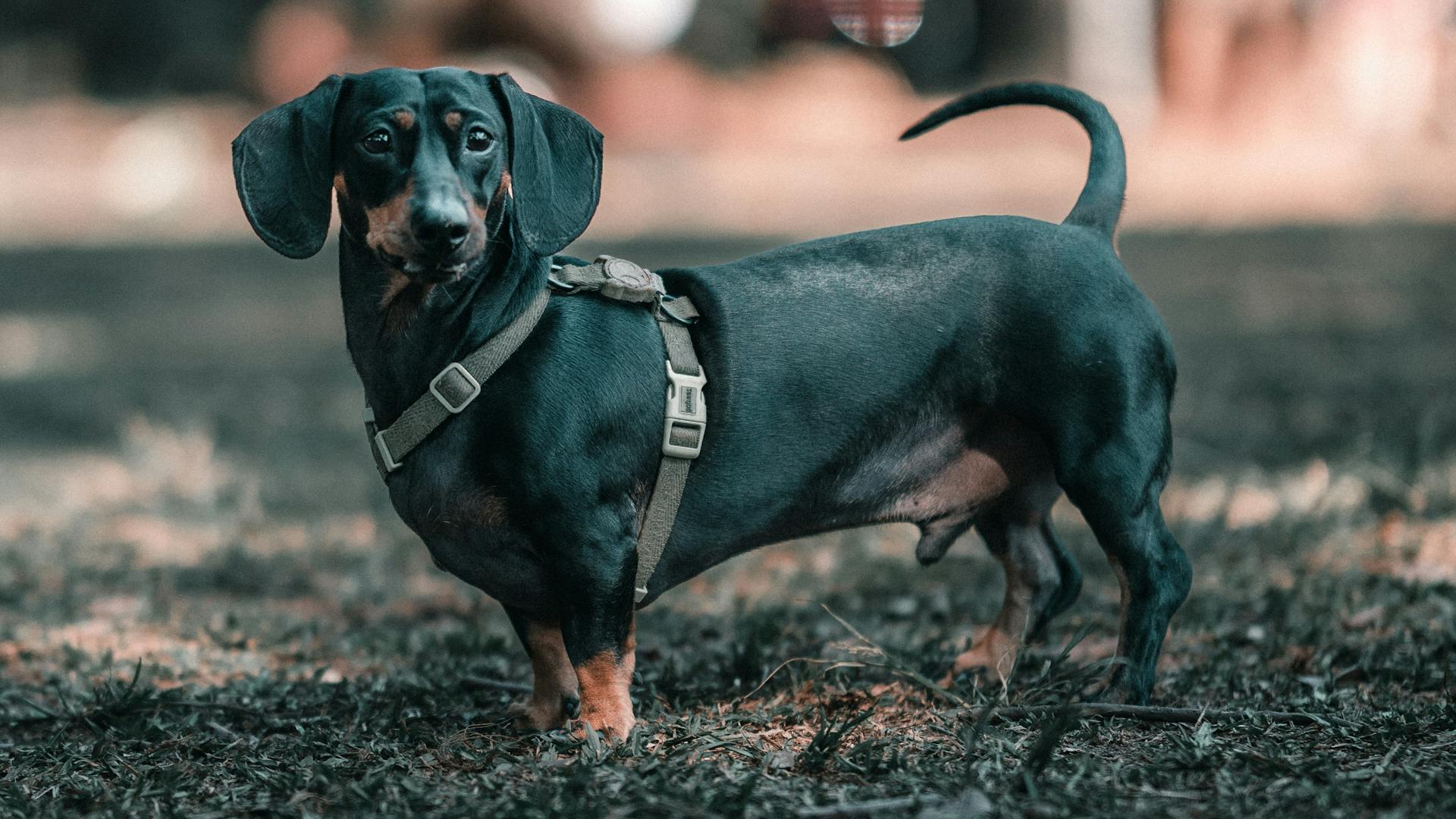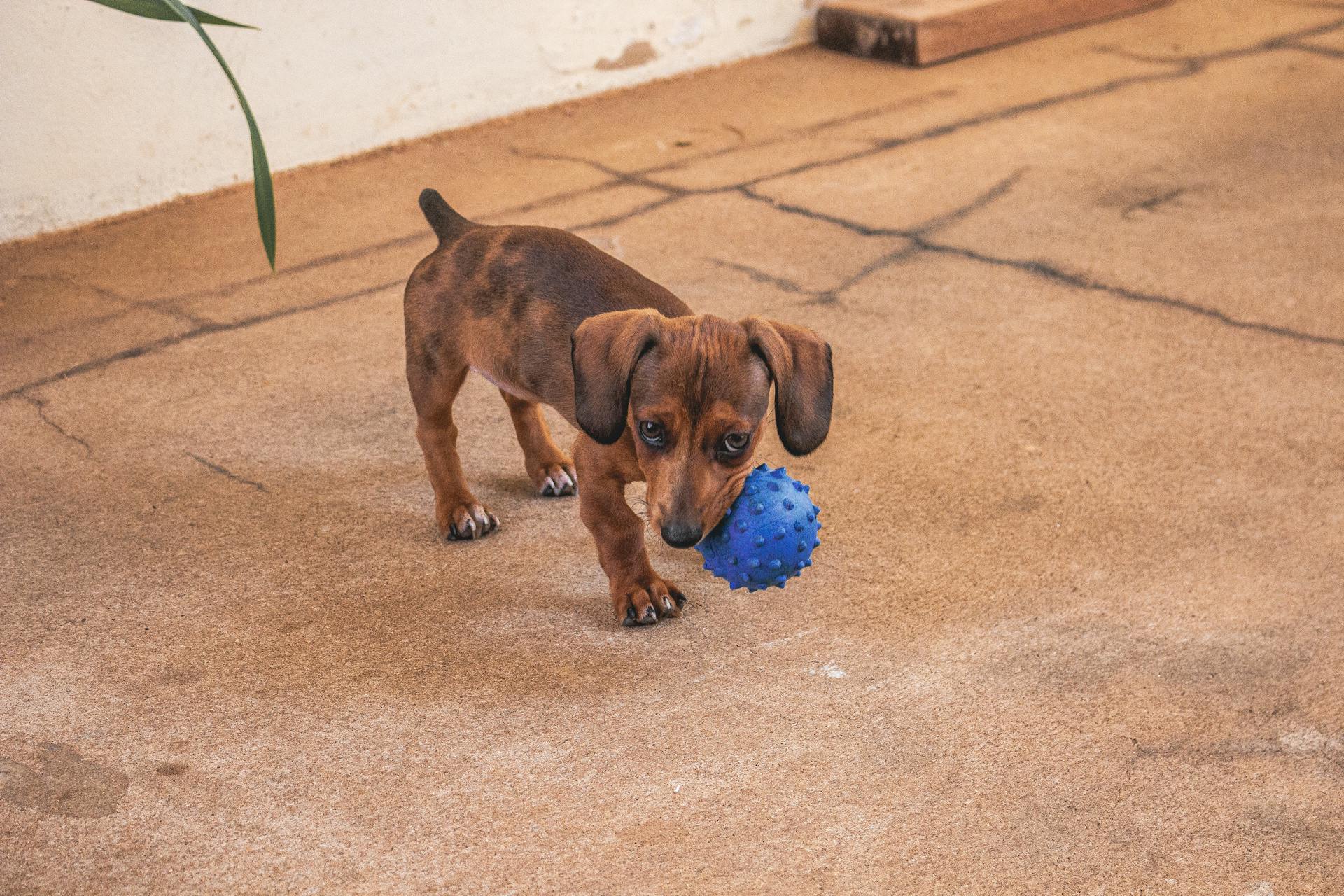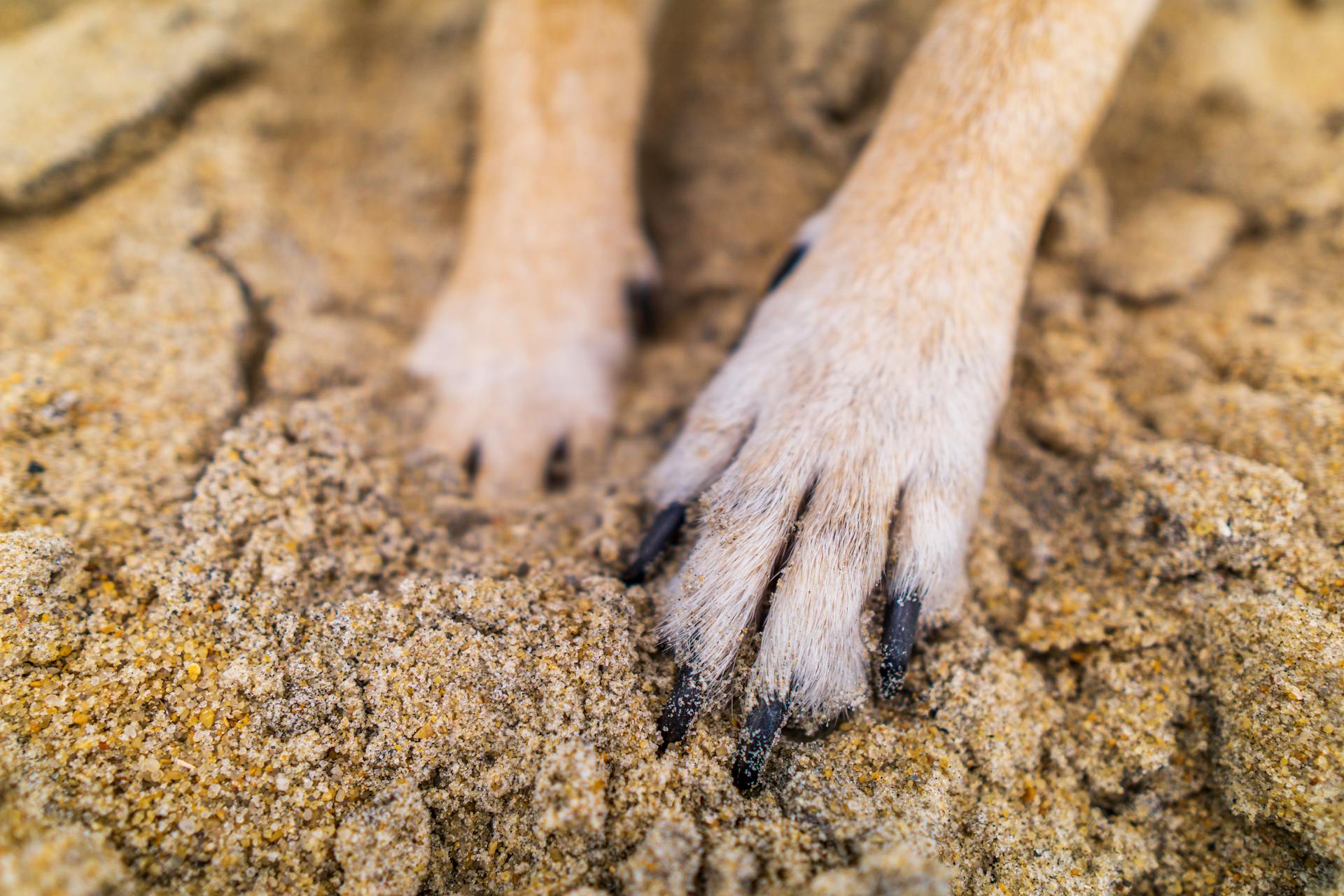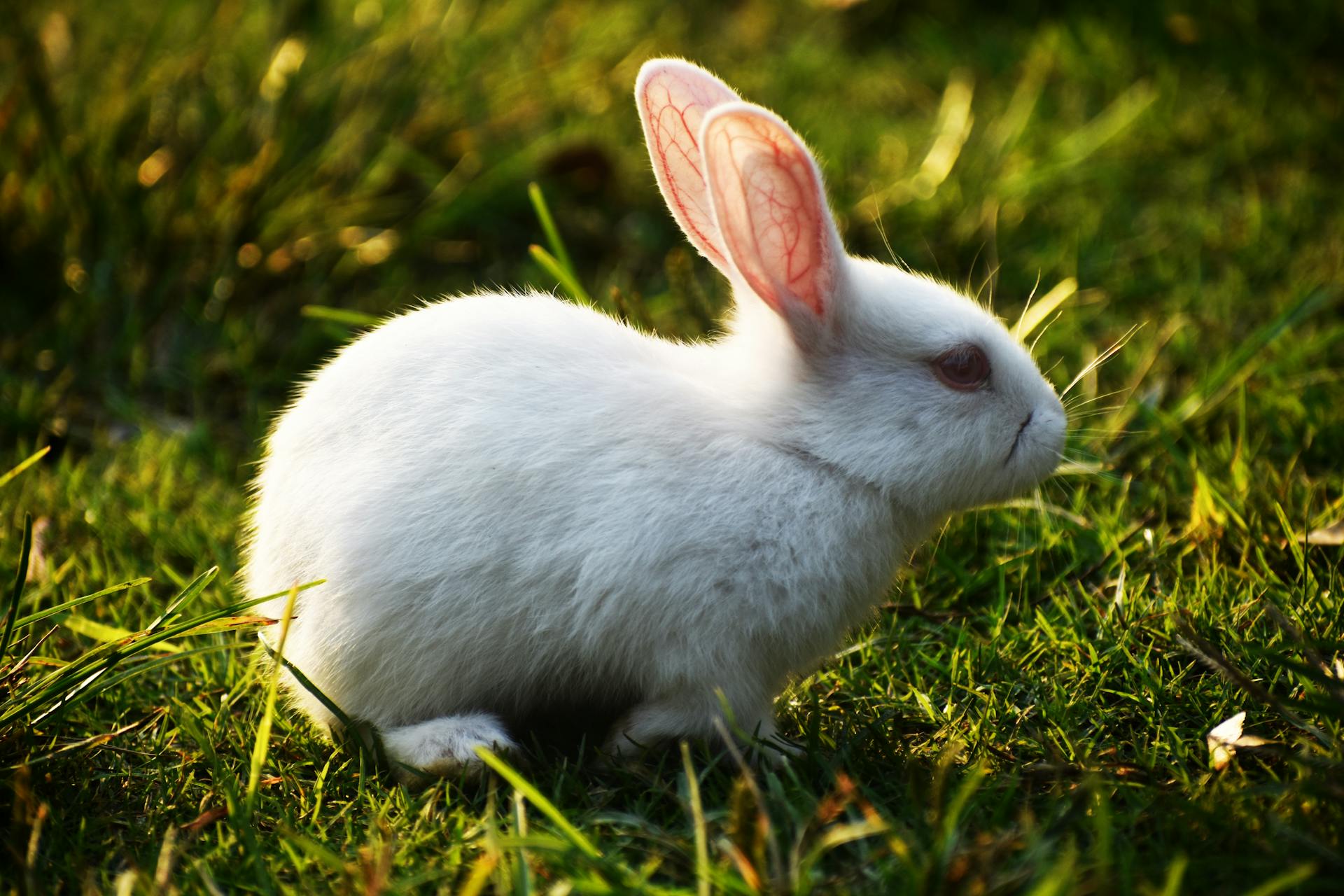
Dachshunds were originally bred to hunt badgers and other burrowing animals, which is why they have an innate instinct to dig and burrow. This behavior is deeply ingrained in their DNA.
Their short stature and long bodies make them well-suited for navigating tight spaces and narrow tunnels, allowing them to follow their quarry into underground dens. This physical characteristic is a result of their history as hunting dogs.
Dachshunds are also driven by a strong prey drive, which means they have a strong instinct to chase and catch small animals. This drive is linked to their brain chemistry, specifically the release of dopamine when they engage in this behavior.
Their burrowing behavior is often a result of boredom, stress, or excess energy, which can be alleviated with regular exercise and mental stimulation.
Historical and Breeding Factors
Dachshunds were originally bred in Germany during the 16th century to hunt small game like badgers, rabbits, and foxes. Their short legs and long bodies were designed to fit into narrow burrows.
Their instinct to burrow or dig is a result of centuries of breeding to create skilled hunters. This behavior is ingrained in every Dachshund.
In fact, Dachshunds were used to crawl into burrows to flush out prey animals, making their small, narrow bodies ideal for this purpose. Their short legs keep them close to the ground for scent-tracking.
Breeding for hunting abilities has not only perfected their body but also enhanced their natural instinct to dig. This is a natural expression of their historical function, rather than a problematic behavior.
You may even notice this digging behavior isn't just limited to nap time but is common during play, or even something they enjoy doing while out in the yard.
Behavior and Management
Managing your Dachshund's burrowing behavior requires understanding their instinctual needs. A designated digging area filled with soft blankets or a designated backyard spot can satisfy their desire to burrow.
Providing cozy hideaways can also help. Soft blankets or dog beds can serve as comfortable hiding spots for your Dachshund to curl up in and satisfy their burrowing instincts.
Regular exercise, such as walks and play sessions, can reduce excessive digging behavior. Consistent training can also help redirect their burrowing behavior, teaching them to respond to commands like "leave it" and "come".
Here are some tips to help manage your Dachshund's burrowing behavior:
- Create a designated digging area
- Provide cozy hideaways
- Offer interactive toys like digging mats and puzzle toys
- Encourage exercise
- Consistent training
Keep a watchful eye on your Dachshund's behavior and make adjustments as needed. This will help you understand their instincts and provide the best care for them.
Anxiety and Stress Behaviors
Dogs can exhibit anxiety or stress behaviors in various ways, including excessive digging. Anxiety comes with its own laundry list of symptoms, making it hard to determine if your dog is just being a dog or if there's an underlying issue.
If you suspect your dog suffers from anxiety, get a veterinarian's diagnosis to rule out any underlying medical conditions. Your vet might prescribe anti-anxiety medication or suggest lifestyle changes.
Excessive digging, especially in new places, can be a sign of stress or anxiety in dogs. Stress often comes from changes in their environment or routine, such as a move, new pet, or family member.
Your dog might enjoy burrowing as a way to cope with anxiety, but it's essential to address the root cause. If your Doxie is digging excessively, think twice about the root of such behavior and consider consulting a professional if necessary.
Take a look at this: Homemade Dog Food for Dachshunds
Behavior at Home

At home, Dachshunds often exhibit burrowing behavior, which can manifest in various ways. They may seek out cozy spots under furniture or blankets, or enjoy digging in the dirt or a designated digging box.
Providing a safe and comfortable environment for your Dachshund to express their instincts is crucial. This means creating a space where they can burrow and dig without causing damage to your home.
A designated digging area can be a soft digging box filled with blankets or a designated area of your backyard where they can dig in the soil. This will allow your Dachshund to satisfy their burrowing instincts without causing harm.
Some Dachshunds prefer to burrow under blankets or furniture, while others enjoy digging in the dirt. Providing cozy hideaways, such as soft blankets or dog beds, can help satisfy their burrowing instincts.
Regular exercise can also reduce excessive digging behavior. Taking your Dachshund for plenty of walks, play sessions, and mental stimulation activities can help redirect their energy away from destructive digging.
Broaden your view: Cats Burrow

Here are some tips to help manage your Dachshund's burrowing behavior at home:
- Provide a designated digging area, such as a soft digging box or a designated area of your backyard.
- Offer cozy hideaways, such as soft blankets or dog beds.
- Encourage exercise through regular walks, play sessions, and mental stimulation activities.
- Keep a watchful eye on your Dachshund's burrowing behavior and make adjustments as needed.
If you suspect your Dachshund is burrowing due to anxiety or stress, consider providing them with their own blankets to play in. This can help them feel more secure and reduce destructive burrowing behavior.
What to Do?
To prevent your Dachshund from excessive burrowing, increase their physical exercise through daily walks, play sessions, and active engagement. This can make a significant difference in reducing boredom.
Daily walks should vary in routes and types of activity to keep things interesting for your pet. Varying the routine will keep them engaged and stimulated.
Social interaction is also vital in reducing boredom. Playdates with other dogs, visits to the dog park, or simply spending time together can help fulfill your Dachshund's social needs.
Mental stimulation is just as crucial as physical exercise. Dachshunds were bred for problem-solving, so they thrive on challenges. Provide a variety of toys that encourage them to think.
Check this out: How Much Exercise Do Dachshunds Need

Interactive toys that release treats can be an effective way to provide mental stimulation. However, be sure not to overfeed your dog with them, as Dachshunds are prone to obesity.
Creating a specific area where your Dachshund is allowed to dig can also be an effective solution. Set up a sandbox or a designated part of the yard where it's okay for them to dig.
If you're often away from home, consider daycare options for dogs or hiring a pet sitter or walker to break up the monotony of a long day alone. Regular interaction and activity can greatly enhance your Dachshund's quality of life and prevent boredom-induced behaviors.
Understanding the Science
Dachshunds' burrowing behavior is rooted in biology and genetics, resulting from breeding practices that favored dogs with short legs and long bodies for hunting underground animals.
Their elongated bodies and short legs are ideal for burrowing and digging, allowing them to fit into tight spaces and hunt small prey.
Burrowing releases endorphins, the feel-good chemicals in the brain, reducing stress and anxiety in Dachshunds, making it an enjoyable activity.
Their natural instinct to dig is also enhanced by their original purpose as hunting dogs, used to flush out badgers, rabbits, and other prey animals from burrows.
Suggestion: Dachshunds Hunting Badgers
Borrowing: The Science Behind

Dachshunds were originally bred to hunt underground animals, and their short legs and long bodies made them perfect for burrowing and digging.
This behavior is rooted in their biology and genetics, as breeding practices favored Dachshunds who could fit into tight spaces and hunt underground animals.
Their bodies were designed to crawl into burrows and flush out prey, and this instinct is still present in modern Dachshunds.
Burrowing releases endorphins, the feel-good chemicals in the brain, which reduces stress and anxiety in Dachshunds, making it an enjoyable activity for them.
Their natural instinct to dig and burrow into tight spaces is a trait that has been passed down through generations, showcasing how breeding for specific traits influences canine behavior long term.
Dachshunds' strong hunting instincts are still present today, and they may exhibit this behavior even in modern living situations.
Their short legs keep them close to the ground for scent-tracking purposes, and their small, narrow bodies make it easy to crawl into burrows to flush out prey animals.
This digging behavior isn't just limited to nap time but is common during play, or even something they enjoy doing while out in the yard.
Dachshunds' natural affinity for digging and burrowing is a result of their original purpose as hunting dogs.
You might enjoy: Rabbit Burrows
Warmth

Dachshunds are more sensitive to the cold and wet than average dogs, which is why they might shiver in chilly weather.
Their coats aren't equipped to handle inclement weather, not even the long-haired Dachshund's coat.
Leaving them outdoors for too long when it's cold can be a problem.
Drying them off thoroughly after a bath, swimming, or getting soaked in the rain is essential.
Keeping your home at a comfortable temperature can help your pup regulate their body temperature.
Managing Burrowing Behavior
Dachshunds have a strong instinct to burrow, which can manifest in various ways at home. You can create a designated digging area, such as a soft digging box filled with blankets or a designated area of your backyard, to satisfy their burrowing instincts.
Providing cozy hideaways, like soft blankets or dog beds, can also help your Dachshund feel secure and comfortable. This can redirect their burrowing behavior from digging in blankets or furniture to a more acceptable spot.
Interactive toys, like digging mats and puzzle toys, can also meet your Dachshund's desire to burrow. These toys mimic the experience of digging and can keep your Dachshund engaged and satisfied.
Regular exercise can reduce excessive digging behavior, so take your Dachshund for plenty of walks, play sessions, and mental stimulation activities. Consistent training can also help redirect their burrowing behavior.
Here are some tips to help you manage your Dachshund's burrowing behavior:
- Create a designated digging area
- Provide cozy hideaways
- Offer interactive toys
- Encourage exercise
- Consistent training
Keep a watchful eye on your Dachshund's burrowing behavior and make adjustments as needed. Understanding their instincts and how these manifest plays a significant role in providing the best care for them.
Dig the Bed
Dachshunds dig the bed to create a sense of comfort and security, an instinct inherited from their hunting ancestry.
Their burrowing behavior is driven by a desire for a warm and cozy spot, which is why they often target soft spaces like your bed.
In fact, digging into the bed provides Dachshunds with a secluded but cozy spot for themselves, which they may find especially appealing.
Their instinctual behavior is a result of their history as hunting dogs, bred to follow prey underground.
Suggestion: Hot Dog Bed for Dachshunds
Frequently Asked Questions
Why do Dachshunds like to be under blankets?
Dachshunds seek security by burrowing under blankets due to their natural pack mentality and instinct to feel safe and protected. This behavior is a common trait in Dachshunds, driven by their desire for comfort and security.
Why do Dachshunds dig the bed?
Dachshunds dig the bed due to their ancestral instinct to burrow and dig, a trait inherited from their original purpose as hunting dogs. This behavior is a natural carryover from their historical duties.
Sources
- https://www.petssatisfaction.com/blogs/dachshund-breed-guide/why-do-dachshund-burrow
- https://www.hepper.com/why-do-dachshunds-burrow-under-blankets/
- https://askdachshund.com/dachshund-burrowing-whats-the-reason-behind-this-behavior
- https://www.dogster.com/dog-breeds/why-dachshunds-burrow-under-blankets
- https://www.newsweek.com/dachshund-sits-inside-owner-sweatshirt-1841567
Featured Images: pexels.com


